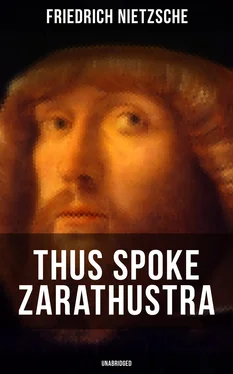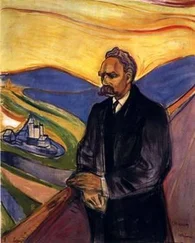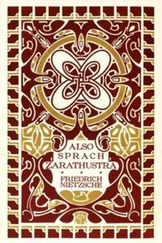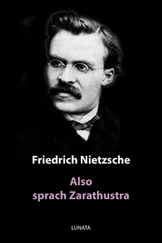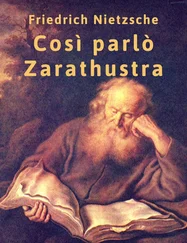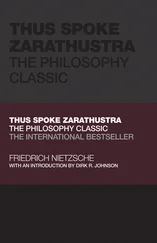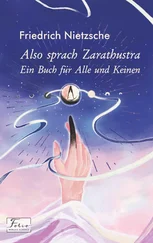Let your love to life be love to your highest hope; and let your highest hope be the highest thought of life!
Your highest thought, however, ye shall have it commanded unto you by me—and it is this: man is something that is to be surpassed.
So live your life of obedience and of war! What matter about long life! What warrior wisheth to be spared!
I spare you not, I love you from my very heart, my brethren in war! —
Thus spake Zarathustra.
Table of Contents
Somewhere there are still peoples and herds, but not with us, my brethren: here there are states.
A state? What is that? Well! open now your ears unto me, for now will I say unto you my word concerning the death of peoples.
A state, is called the coldest of all cold monsters. Coldly lieth it also; and this lie creepeth from its mouth: “I, the state, am the people.”
It is a lie! Creators were they who created peoples, and hung a faith and a love over them: thus they served life.
Destroyers, are they who lay snares for many, and call it the state: they hang a sword and a hundred cravings over them.
Where there is still a people, there the state is not understood, but hated as the evil eye, and as sin against laws and customs.
This sign I give unto you: every people speaketh its language of good and evil: this its neighbour understandeth not. Its language hath it devised for itself in laws and customs.
But the state lieth in all languages of good and evil; and whatever it saith it lieth; and whatever it hath it hath stolen.
False is everything in it; with stolen teeth it biteth, the biting one. False are even its bowels.
Confusion of language of good and evil; this sign I give unto you as the sign of the state. Verily, the will to death, indicateth this sign! Verily, it beckoneth unto the preachers of death!
Many too many are born: for the superfluous ones was the state devised!
See just how it enticeth them to it, the many-too-many! How it swalloweth and cheweth and recheweth them!
“On earth there is nothing greater than I: it is I who am the regulating finger of God”— thus roareth the monster. And not only the long-eared and short-sighted fall upon their knees!
Ah! even in your ears, ye great souls, it whispereth its gloomy lies! Ah! it findeth out the rich hearts which willingly lavish themselves!
Yea, it findeth you out too, ye conquerors of the old God! Weary ye became of the conflict, and now your weariness serveth the new idol!
Heroes and honourable ones, it would fain set up around it, the new idol! Gladly it basketh in the sunshine of good consciences—the cold monster!
Everything will it give you , if YE worship it, the new idol: thus it purchaseth the lustre of your virtue, and the glance of your proud eyes.
It seeketh to allure by means of you, the many-too-many! Yea, a hellish artifice hath here been devised, a death-horse jingling with the trappings of divine honours!
Yea, a dying for many hath here been devised, which glorifieth itself as life: verily, a hearty service unto all preachers of death!
The state, I call it, where all are poison-drinkers, the good and the bad: the state, where all lose themselves, the good and the bad: the state, where the slow suicide of all—is called “life.”
Just see these superfluous ones! They steal the works of the inventors and the treasures of the wise. Culture, they call their theft—and everything becometh sickness and trouble unto them!
Just see these superfluous ones! Sick are they always; they vomit their bile and call it a newspaper. They devour one another, and cannot even digest themselves.
Just see these superfluous ones! Wealth they acquire and become poorer thereby. Power they seek for, and above all, the lever of power, much money—these impotent ones!
See them clamber, these nimble apes! They clamber over one another, and thus scuffle into the mud and the abyss.
Towards the throne they all strive: it is their madness—as if happiness sat on the throne! Ofttimes sitteth filth on the throne.—and ofttimes also the throne on filth.
Madmen they all seem to me, and clambering apes, and too eager. Badly smelleth their idol to me, the cold monster: badly they all smell to me, these idolaters.
My brethren, will ye suffocate in the fumes of their maws and appetites! Better break the windows and jump into the open air!
Do go out of the way of the bad odour! Withdraw from the idolatry of the superfluous!
Do go out of the way of the bad odour! Withdraw from the steam of these human sacrifices!
Open still remaineth the earth for great souls. Empty are still many sites for lone ones and twain ones, around which floateth the odour of tranquil seas.
Open still remaineth a free life for great souls. Verily, he who possesseth little is so much the less possessed: blessed be moderate poverty!
There, where the state ceaseth—there only commenceth the man who is not superfluous: there commenceth the song of the necessary ones, the single and irreplaceable melody.
There, where the state ceaseth — pray look thither, my brethren! Do ye not see it, the rainbow and the bridges of the Superman? —
Thus spake Zarathustra.
12. The Flies in the Market–Place.
Table of Contents
Flee, my friend, into thy solitude! I see thee deafened with the noise of the great men, and stung all over with the stings of the little ones.
Admirably do forest and rock know how to be silent with thee. Resemble again the tree which thou lovest, the broad-branched one—silently and attentively it o’erhangeth the sea.
Where solitude endeth, there beginneth the market-place; and where the market-place beginneth, there beginneth also the noise of the great actors, and the buzzing of the poison-flies.
In the world even the best things are worthless without those who represent them: those representers, the people call great men.
Little do the people understand what is great—that is to say, the creating agency. But they have a taste for all representers and actors of great things.
Around the devisers of new values revolveth the world:— invisibly it revolveth. But around the actors revolve the people and the glory: such is the course of things.
Spirit, hath the actor, but little conscience of the spirit. He believeth always in that wherewith he maketh believe most strongly—in himself !
Tomorrow he hath a new belief, and the day after, one still newer. Sharp perceptions hath he, like the people, and changeable humours.
To upset—that meaneth with him to prove. To drive mad—that meaneth with him to convince. And blood is counted by him as the best of all arguments.
A truth which only glideth into fine ears, he calleth falsehood and trumpery. Verily, he believeth only in Gods that make a great noise in the world!
Full of clattering buffoons is the market-place—and the people glory in their great men! These are for them the masters of the hour.
But the hour presseth them; so they press thee. And also from thee they want Yea or Nay. Alas! thou wouldst set thy chair betwixt For and Against?
On account of those absolute and impatient ones, be not jealous, thou lover of truth! Never yet did truth cling to the arm of an absolute one.
On account of those abrupt ones, return into thy security: only in the market-place is one assailed by Yea? or Nay?
Slow is the experience of all deep fountains: long have they to wait until they know what hath fallen into their depths.
Away from the market-place and from fame taketh place all that is great: away from the market–Place and from fame have ever dwelt the devisers of new values.
Читать дальше
